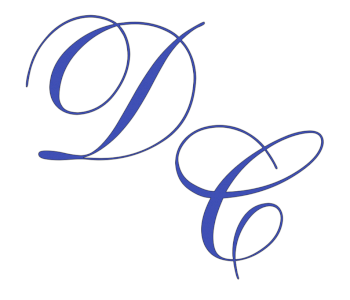Dave Cornish
DC Safe Money Solutions
Selecting the Best Retirement Accounts for Your Future
Planning for retirement is essential to achieving financial security, and choosing the right retirement accounts is crucial for developing a strong retirement strategy. Retirement accounts offer various tax benefits that might significantly enhance your savings over time. This article outlines different types of retirement accounts, their advantages, and how they may help you meet your retirement objectives.
Types of Retirement Accounts
Several types of retirement accounts are available, each with unique rules and benefits. The most common include:
- Traditional IRA (Individual Retirement Account): Contributions to a traditional IRA are made with pre-tax income, which may reduce your taxable income for the year. Investments grow tax-deferred, meaning you don’t pay taxes on earnings until you withdraw the money in retirement. Withdrawals are taxed as ordinary income, and early withdrawals (before age 59½) generally incur a 10% penalty plus income tax.
- Roth IRA: Roth IRA contributions are made using after-tax dollars, which means you don't receive a tax deduction when you contribute. However, the earnings on these investments grow tax-free, and withdrawals in retirement, if qualified, are also tax-free. This type of account is advantageous if you expect to be in a higher tax bracket during retirement. Additionally, Roth IRAs offer more flexibility because they do not require minimum distributions (RMDs) during the account holder's lifetime.
- 401(k): A 401(k) is a retirement plan provided by employers, enabling employees to contribute a portion of their salary before taxes are taken out. Many employers match these contributions, which may greatly enhance your retirement savings. Similar to traditional IRAs, the funds in a 401(k) grow tax-deferred, meaning taxes are paid upon withdrawal during retirement. Taking money out before reaching the age of 59½ usually incurs penalties, just like with traditional IRAs.
- Roth 401(k): This account combines features of a traditional 401(k) and a Roth IRA. Contributions are made with after-tax dollars, but the growth and qualified withdrawals in retirement are tax-free. Employer matches may still made pre-tax and are held in a separate traditional 401(k) account, meaning those contributions will be taxed upon withdrawal.
- SEP IRA (Simplified Employee Pension): Designed for self-employed individuals and small business owners, SEP IRA contributions are made by the employer and are tax-deductible for the business. The contributions grow tax-deferred, and withdrawals in retirement are taxed as ordinary income.
- SIMPLE IRA (Savings Incentive Match Plan for Employees): Targeted at small businesses, both employees and employers may contribute to a SIMPLE IRA. Contributions are pre-tax, lowering taxable income, and the investments grow tax-deferred until retirement, when withdrawals are taxed as ordinary income.
Benefits of Retirement Accounts
- Tax Advantages: Retirement accounts offer substantial tax benefits. Traditional IRAs and 401(k)s provide immediate tax deductions on contributions, while Roth IRAs and Roth 401(k)s offer tax-free growth and withdrawals.
- Compounding Growth: The tax-deferred or tax-free nature of retirement accounts allows investments to grow more rapidly through compounding. Over time, this may significantly increase your retirement savings.
- Employer Contributions: Many employer-sponsored plans, such as 401(k)s, include matching contributions. These matches are essentially free money that might greatly enhance your retirement savings.
- Investment Options: Retirement accounts generally provide a range of investment choices, such as stocks, bonds, mutual funds, and ETFs. This variety allows individuals to build a portfolio that matches their risk tolerance and retirement objectives.
- Automatic Savings: Many retirement accounts allow for automated contributions, making it easier to save consistently. This approach may help build a substantial nest egg over time without requiring constant management.
How to Choose the Right Retirement Account
Choosing the appropriate retirement account depends on various factors, including your income, employment status, tax situation, and retirement goals. Here are some tips to guide your decision:
- Evaluate Your Tax Situation: If you expect to be in a lower tax bracket in retirement, a traditional IRA or 401(k) might be more advantageous due to the immediate tax deduction. If you expect to be in a higher tax bracket, a Roth IRA or Roth 401(k) could be beneficial because of the tax-free withdrawals.
- Consider Employer Plans: If your employer offers a 401(k) with matching contributions, it’s often wise to contribute enough to receive the full match before exploring other retirement accounts.
- Options for the Self-Employed: If you’re self-employed, SEP IRAs and SIMPLE IRAs offer high contribution limits and tax benefits that may help maximize your retirement savings.
- Diversify Your Accounts: Maintaining a mix of traditional and Roth accounts may provide tax flexibility in retirement, allowing you to manage your taxable income more effectively when you start withdrawing funds.
Understanding and selecting the right retirement accounts are fundamental for building a secure financial future. By leveraging the tax advantages and compounding growth offered by these accounts, you may ensure a comfortable and financially stable retirement. Start planning today to maximize your retirement savings opportunities.
Consult with a trusted financial advisor to customize a retirement plan that fits your unique needs and goals. They may help you navigate the complexities of retirement accounts and optimize your savings for a secure future.
Many people have learned about the power of using the Safe Money approach to reduce volatility. Our Safe Money Guide is in its 20th edition and is available for free.
It is an Instant Download. Here is a link to download our guide:

Dave Cornish
DC Safe Money Solutions
Orland Park, Illinois 60467
dave@dcsafemoney.com
(708) 373-7859


Looking For Answers?
Download our Safe Money Guide and learn more about safe retirement options that can help you achieve your retirement goals safely - FREE!
